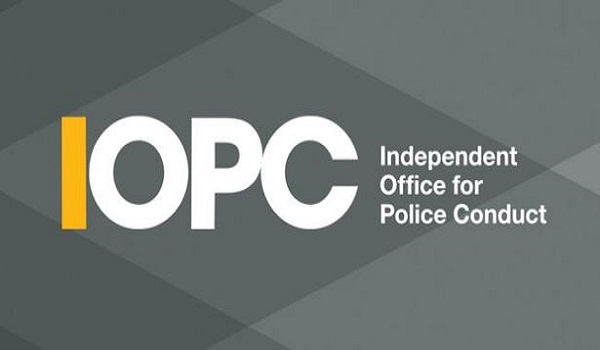IOPC ‘absolutely refutes’ criticism of its decision-making in Maida Vale stop and search investigation
The Independent Office for Police Conduct (IOPC) said it “absolutely refutes” the suggestion that “improper political or external interference” was brought to bear on its investigation into the stop and search of black athletes Bianca Williams and Ricardo Dos Santos in North West London in July 2020.
Five officers Metropolitan Police Service (MPS) are facing gross misconduct proceedings over the incident in Maida Vale, after video footage was shared widely on social media at the time.
Former IOPC employee Trisha Napier, who investigated the actions of the officers involved, told BBC Newsnight her probe was “watered down” and felt the former Director-General of the IOPC, Michael Lockwood, “interfered” with the case by requesting to see footage and documents.
Ms Napier told Newsnight: “I was supposed to be leading an investigation and my decisions were overturned by senior managers.
“The integrity of the organisation, in my view, was completely diminished and I could just no longer… work for them any more.”
Responding to the comments on BBC Newsnight on the decision-making in the Maida Vale stop and search investigation, the IOPC stressed that decisions are “made independently of the police, the Government and any other group or individual”.
“They are based solely on the available evidence,” said a spokesperson. “We absolutely refute the suggestion that our decisions were influenced by anything other than the evidence during this investigation.”
They added: “As the result of that investigation and our direction to the MPS, five officers are now facing gross misconduct proceedings for potential breaches of professional standards including equality and diversity.
“In 2021, an employee raised a concern that there had been improper political or external interference brought to bear on our investigation.
“We took that allegation very seriously and the matter was investigated by a number of senior individuals. We concluded that these serious allegations were without merit and found no evidence of any improper practice or interference in the investigation or our decision making.
“The Director-General is responsible and accountable for all IOPC operational decisions. The vast majority of those decisions are delegated from the Director-General to our operational colleagues and as a result they may seek assurance that those decisions are appropriate in a range of ways including by reviewing the evidence themselves. This is not unusual or unique to this case.
“Decision-making during and at the end of investigations happens at different levels of the organisation depending on a variety of factors including the complexity of the case and its impact on public confidence. Given the significant community concerns and public confidence issues raised by this case Mr Naseem, who as Regional Director is our most senior decision maker in London as well as our organisational lead on discrimination, chose to become the decision-maker.
“We keep our decisions constantly under review so it is not unusual or unique that they can be subject to change as the evidence develops.
“Our priority is that the disciplinary proceedings in this matter are not jeopardised. It is vital, for both the complainants and the officers involved, that the gross misconduct hearing can run its course and those involved are accountable for their actions.
“We cannot risk jeopardising those proceedings by commenting on the evidence in advance of that hearing, which is likely to be held in public.”


